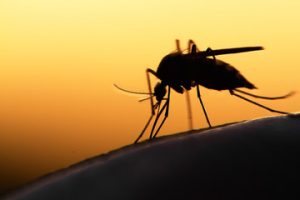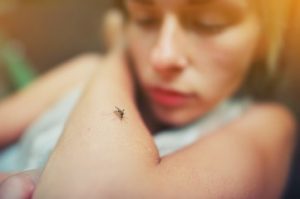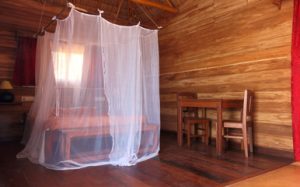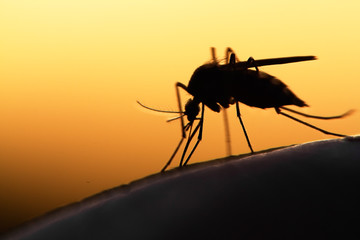Nigeria is a vibrant, wonderful country, full of very friendly and welcoming people. The country offers a lot of business networking, business, travel, leisure, and tourism opportunities to foreigners.
You may be a US citizen or European citizen who wants to travel to this wonderful country to take advantage of the wonderful opportunities it offers. One challenge you may face and have to
overcome, however, is dealing with malaria.
In this post, I will help you to:
• Understand the malaria disease better
• Show you how you can prevent the disease
• Teach you how you can treat the disease
so that you can enjoy your stay in Nigeria.
Let’s dive right in!
What Is Malaria?

Malaria is an acute, sometimes severe and protracted, disease caused by parasitic protozoa of the genus Plasmodium. Four species of this genus infect humans and cause malaria. They are:
• Plasmodium falciparum
• Plasmodium malariae
• Plasmodium ovale
• Plasmodium vivax
Some Malaria Facts You Should Know
• Malaria is common and severe in the tropics and subtropics
• According to the WHO Regional Office for Africa, 92% (200 million cases) of all global malaria cases occurred in Africa in 2017.
• Five countries accounted for nearly half of all malaria cases worldwide
• Four of these countries were in Africa: Uganda(4%), Mozambique(5%), DR Congo (11%) and Nigeria (25% of all cases)
[1]
• About 110 million cases of malaria are diagnosed in Nigeria each year.
How Is Malaria Transmitted?

Human beings are the only important source of human malaria; the
malaria parasite can be transmitted from one person to another by the bite of the transmitting vector, an infected female Anopheles gambiae mosquito.
While feeding on an infected person (the mosquito typically bites
between 10.00 pm and 2.00 am), the mosquito ingests male and female sexual cells with the infected human blood. The cells undergo a transformation in the mosquito’s stomach and then migrates to the salivary gland.
When this mosquito bites an infected person or a symptomless parasite carrier while feeding, it introduces the parasite, called sporozoites, from its salivary gland into the person’s blood.
The parasites move from the blood of the infected person into the liver. During the one or two weeks of this cycle called the pre-erythrocytic stage, the parasites (now called merozoites) multiply in the liver and reenter the blood.
Some of the malaria parasites, especially Plasmodium malariae, may be transmitted in drug addicts when small quantities of infected blood containing the parasites are exchanged through the use of shared syringes.
Malaria Symptoms
How does malaria affect the body?
Usually about:
• 12 days are required for Plasmodium falciparum to develop
• 13 to 15 days for Plasmodium vivax or Plasmodium ovale to develop
• up to one month for Plasmodium malariae to develop
With some strains of Plasmodium vivax, the incubation period may be delayed for several weeks or months. The incubation period may also be delayed in persons taking antimalarial prophylaxis.
All the malaria symptoms caused by the malaria parasite are caused by blood-stage parasites. The main symptoms of malaria begin when the infected person experiences a headache.
Paroxysms are characteristic of the disease. A typical paroxysm includes “the cold stage,” “the hot stage,” and the “wet stage.” During the “cold stage,” lasting up to about one hour, the patient is
attacked by a shaking chill that cannot be managed by a warm cover. The body temperature rapidly rises to 40-41 C or higher within 120 minutes.
In the subsequent “hot stage” (fever), the face reddens, and the skin becomes dry. Additionally, the patient feels very hot and restless. His breathing is fast, and his skin is dry and flushed. Thirst and vomiting are also common.
After two to four hours comes the “wet stage” where the patient breaks out into a profuse perspiration, and his temperature falls to normal or below normal. The patient becomes drowsy and normally falls asleep.
Other symptoms may include:
• severe frontal headache
• nausea
• lower back, neck and leg pain
• dizziness
• dry cough
• anemia
• enlargement of the spleen
• on rare occasions, Plasmodium vivax may cause rupture of the spleen.
Severe Malaria
In severe malaria cases, kidney disease can result from repeated infections with Plasmodium malariae. Malaria can also make you susceptible to other infections, such as respiratory infections or skin infections.
Your lungs can be affected; you may find it hard to breathe; you may develop low blood pressure. Kidney injury, excessive acidity in the body (in the blood and tissue fluids), and low blood glucose are not uncommon.
How Is Malaria Diagnosed?
When you present the classic and prominent symptoms of periodic fever, with rigor, sweating, and anemia, the doctor will ask you about your travels, medical history, and whether you are taking malaria prophylaxis or not.
The doctor will then listen to your breathing, check your spleen and then most likely order a blood test to help him confirm the kind of malaria parasite causing your malaria.
Diagnosis of malaria involves either microscopy or a rapid diagnostic test (RDT). In microscopy, several thick blood films are taken and perused under a microscope.
Although the finding of parasites in the blood establishes the diagnosis, one or two negative reports are not sufficient to discard the possibility of malaria infection. The parasites may be in the
liver but may not have infected the blood. The parasites are usually in greatest numbers for a few hours after the rigor. If rapid examination of blood films is not possible, and the probability of malaria exists, adequate treatment may be instituted at once after taking the blood film but without waiting for the result of its examination.
If falciparum malaria is confirmed, your doctor will make you check the disappearance of the parasites by several subsequent blood tests after your treatment.
Is There A Malaria Vaccine?
Yes, there is a vaccine that can be used to prevent malaria in infants called RTS, S, also known as Mosquirix. It is administered by taking four injections.
However, the downside is that field experiments have shown it is not efficacious. The experiments revealed a 30% efficacy in infants between 6 and 12 weeks of age, and about 50% efficacy in infants 5 to 17 months of age. [2]
Can You Cure Malaria?
Malaria can be treated. All antimalarial drugs for treatment maybe
considered under two main categories:
• protective drugs for the prevention of the disease
• therapeutic drugs for its treatment.
Protective Drugs
The US CDC (mind you Nigeria also has a CDC) recommends these drugs:
1. Malarone
Take 1 or 2 tablets of Malarone (Atovaquone and proguanil) two days before you arrive in Nigeria, daily during travel, and for one week after leaving.
The side effects of the malaria pill Malarone include nausea, vomiting, diarrhea, itching, abdominal pain, and dizziness. Note that you cannot use this drug if you are pregnant or breastfeeding a baby who weighs less than 5 kg.
2. Mefloquine
Mefloquine is another drug you can take. Take 228 mg base one week before you travel, weekly during your travel, and for one month after leaving Nigeria.
You can use this drug if you are pregnant. However, you cannot use it if you have a recent history of depression, anxiety, bipolar disorder, and suicidal ideation or if you have a seizure disorder.
[3]Therapeutic Drugs For Treatment of Malaria
The doctor will give you fast-acting artemisinin-based drugs such as Artemether Lumefantrine, also known as Coartem, and Artesunate amodiaquine as the first line of treatment.
If you develop severe malaria and show symptoms such as vomiting, pronounced nausea, or indigestion, you will be injected with a rapidly acting antimalarial, for example, Artesunate amodiaquine. If you have falciparum malaria, i.e., when over 5% of your blood is infected, even though clinical symptoms may not be very alarming, your doctor will treat it as a medical emergency. You will be given injectable Artesunate for 24 hours and a complete three- day course of Artemether-lumefantrine or Artesunate amodiaquine.
Malaria Pill Side Effects
Some people may experience some or all of these symptoms when they take the malarial pills mentioned above:
• mild gastrointestinal symptoms, especially abdominal discomfort
• nausea
• temporary mental disturbances
• yellow discoloration of the skin and nails and eyes
• vomiting
Furthermore, note that all these drugs are very bitter and you can drink them with milk, fruit juice, or a flavored fluid.
The Time Of The Year When Nigeria Experiences The Most Malaria Cases
In the dry savanna areas (Northern Nigeria), the transmission is high in
the rainy season (between June and October) and low in the dry season (between November and May).
Some studies have shown that the highest Plasmodium parasite density occurs in September. There is usually a lot of rainfall, as well as a lot of sunshine, in September, and that increases the opportunities for mosquitos to breed.
On the other hand, in the wet forest areas of Nigeria, malaria transmission occurs at a high level year-round because of lots of
rainfall and stagnant surface water serve as fertile breeding grounds for mosquitoes.
[4] [5]
Prevent Malaria By Preventing Mosquito Bites

Taking drugs is not the only way you can avoid getting malaria. The WHO asserts that the best way to prevent malaria infection is to prevent infection in the first place.
How do you do that? By sleeping under an insecticide-treated bed net when you arrive in Nigeria. These nets are generally treated with two types of chemicals, pyrroles, and pyrethroids. They may also be treated with insecticides permethrin or deltamethrin, which are toxic to mosquitoes but pose a low health risk to humans.
Nets given this kind of treatment can protect you for six months. There are also long-lasting insecticide-treated mosquito bed nets that you can buy in any pharmacy upon arrival of your arrival in Nigeria. These nets are effective for at least three years, even if you wash them and can protect, on average, two people. You can hang this net in the ceiling of your room, hung it on a frame attached to your bed.
Optionally you can buy a tent made of mosquito netting if you will be spending evenings outdoor but want to enjoy the beautiful natural environment of Nigeria.
Make sure the net does not rest directly on your skin because mosquitos can bite through them. And don’t forget to wear long sleeves and long pants when you go outside.
Cost Of The Nets
You can purchase these nets for between $2.50 and $3.50 or between 2 and 3 euros from the WHO or the United Nations.
In Nigeria, the market price of these nets is about 1350 Naira or USD $3.33.
References:
Loeb, C. (1971). Textbook of Medicine. Thirteenth edition. W.B
Saunders Company.
Volovskaya, M.L. (1990). Epidemiology and Fundamentals of Infectious Diseases. Moscow Mir Publishers.
Author’s Bio:
Isaac Nunoofio is a freelance health writer for hire. He is a firm believer in positive encouragement and holistic approaches to health and wellness to help people live healthily. Share his passion at https://isaacnunoofio.blogspot.com and
https://www.linkedin.com/in/isaacnunoofio








